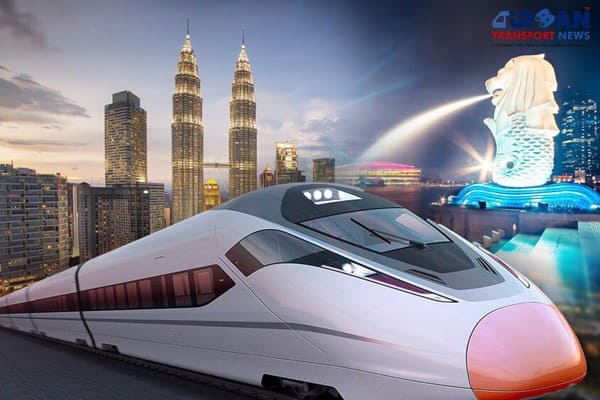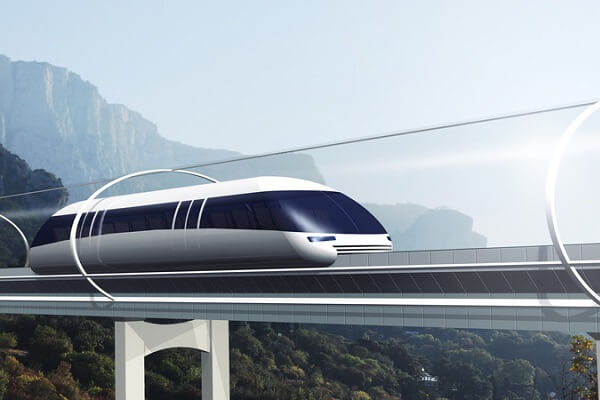 North-South Commuter Railway (NSCR): Modern Train Network Connecting Luzon Island
North-South Commuter Railway (NSCR): Modern Train Network Connecting Luzon Island India launched Bharat Taxi Service as First Cooperative-Owned Digital Mobility Platform
India launched Bharat Taxi Service as First Cooperative-Owned Digital Mobility Platform India places World’s First Live Commercial Order for Hyperloop-Based Cargo Logistics
India places World’s First Live Commercial Order for Hyperloop-Based Cargo Logistics How Weigh-in-Motion Systems Are Revolutionizing Freight Safety
How Weigh-in-Motion Systems Are Revolutionizing Freight Safety Women Powering India’s Electric Mobility Revolution
Women Powering India’s Electric Mobility Revolution Rail Chamber Launched to Strengthen India’s Global Railway Leadership
Rail Chamber Launched to Strengthen India’s Global Railway Leadership Wage and Hour Enforcement Under the Massachusetts Wage Act and Connecticut Labor Standards
Wage and Hour Enforcement Under the Massachusetts Wage Act and Connecticut Labor Standards MRT‑7: Manila’s Northern Metro Lifeline on the Horizon
MRT‑7: Manila’s Northern Metro Lifeline on the Horizon Delhi unveils ambitious Urban Mobility Vision: Luxury Metro Coaches, New Tunnels and Pod Taxi
Delhi unveils ambitious Urban Mobility Vision: Luxury Metro Coaches, New Tunnels and Pod Taxi Qatar approves Saudi Rail Link Agreement, Accelerating Gulf Railway Vision 2030
Qatar approves Saudi Rail Link Agreement, Accelerating Gulf Railway Vision 2030
Kuala Lumpur-Singapore high-speed rail project cost could be slashed to RM70 Billion

Kuala Lumpur, Malaysia (Urban Transport News): The Kuala Lumpur-Singapore high-speed rail (KL-SG HSR) project, once touted to cost RM110 billion, now seems to be heading towards a budget of around RM70 billion, a significant drop according to market insiders. This revelation comes amid ongoing evaluations of private sector involvement and financing capabilities for the ambitious rail venture.
Insiders familiar with the project suggest that the projected cost reduction to RM70 billion is a speculative figure, taking into account various factors such as the length and alignment of the railway line, as well as the required number of trains and stations. MyHSR Corporation, the government entity overseeing the project, recently received concept proposals from seven consortia, signaling progress in the evaluation phase.
Despite efforts to ascertain the private sector's capacity to fund the project independently, it appears that three consortiums have emerged as front-runners, each expressing a need for some form of government financial support. Notably, the Chinese consortium, led by state-owned China Railway Construction, is perceived to have the financial muscle to undertake the project without relying on state funds.
Dr. Yeah Kim Leng, a Professor of Economics at Sunway University Business School, views the shortlisting of consortiums as a positive step towards realizing the mega rail project. However, he underscores the need to address various challenges, including funding clarity, feasibility assessments, and the extent of government backing.
The potential for private financing hinges on the project's commercial viability, particularly in terms of financing feasibility. Transport Minister Anthony Loke Siew Fook has hinted at adopting a concession model similar to highway construction for private involvement in the HSR project, emphasizing its potential as an economic game-changer for Malaysia.
The KL-SG HSR project conceptualized over two decades ago, has seen its fair share of setbacks and delays. Following Malaysia's request, the project was put on hold, leading to a compensation payout to Singapore. However, talks of reviving the project gained momentum post-2022 general elections, with Prime Minister Datuk Seri Anwar Ibrahim's visit to Singapore signaling a renewed interest in cross-border connectivity.
KGV International Property Consultants executive director Sr. Samuel Tan sees the HSR project as a transformative force in Malaysia's transportation landscape. With seamless connectivity expected to span across the Pan Asian Railway Network, Malaysia stands to attract increased investments, fostering economic growth and regional integration.
As discussions continue and plans evolve, the KL-SG HSR project remains a symbol of Malaysia's aspirations for enhanced connectivity and economic prosperity in the region.







